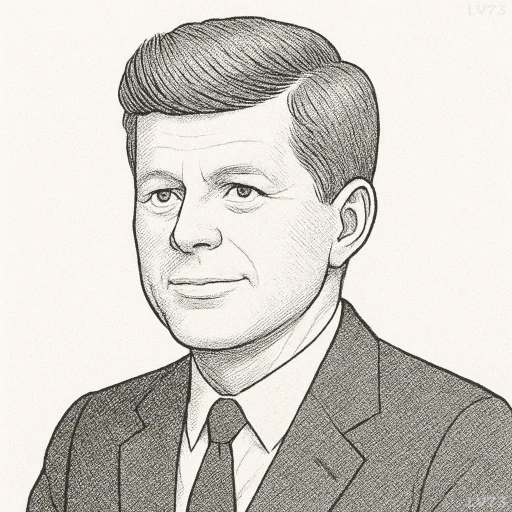“The world is very different now. For man holds in his mortal hands the power to abolish all forms of human poverty, and all forms of human life.”

- May 29, 1917 – November 22, 1963
- American
- Politician
table of contents
Quote
“The world is very different now. For man holds in his mortal hands the power to abolish all forms of human poverty, and all forms of human life.”
Explanation
In this statement, John F. Kennedy reflects on the profound shift in the capabilities of humanity, particularly with respect to the power and responsibility associated with modern technology and political decisions. Kennedy acknowledges that humanity now possesses immense power—the potential to eradicate widespread poverty and suffering, but also the devastating capability to destroy life itself. This duality, where human progress has reached a point where both great good and great destruction are possible, is a central theme of Kennedy’s reflections during the Cold War era. At the time, the world faced unprecedented dangers due to the advent of nuclear weapons, which had the potential to annihilate not just nations but entire civilizations. Kennedy’s words underscore the stark reality that the same technological advances that have allowed for the possibility of abolishing poverty and improving human welfare have also made possible the complete destruction of life through warfare or nuclear conflict.
Kennedy’s remark was made during a period of heightened global tension—particularly during the Cold War, when the threat of nuclear war between the United States and the Soviet Union was at its peak. The early 1960s were marked by the Cuban Missile Crisis, the growing nuclear arms race, and increasing political and ideological divisions between East and West. Kennedy’s recognition that humanity now holds such immense power speaks to the sense of urgency he felt in addressing the dangers of nuclear proliferation, while also acknowledging the hope that the same capabilities could be harnessed for peaceful purposes. His statement is a call to action—a reminder that humanity’s greatest challenge is not just the technological capability to destroy but also the moral and ethical responsibility to use that power wisely for human progress.
Kennedy’s words resonate in the modern era, where technological advancements—in fields such as artificial intelligence, biotechnology, and environmental engineering—continue to present both extraordinary opportunities and unprecedented risks. Today, we find ourselves once again grappling with the moral implications of our technological power, from the threat of nuclear war to the potential consequences of climate change, genetic manipulation, and artificial intelligence. Kennedy’s message remains a poignant reminder that human progress must be guided by a strong ethical compass to ensure that the power we wield is used to improve the human condition, rather than bringing about its undoing. His words encourage us to reflect on our collective responsibility to use our technological capabilities wisely, to balance progress with prudence, and to recognize that the power to shape the future must be exercised with caution, compassion, and wisdom.
Would you like to share your impressions or related stories about this quote in the comments section?


